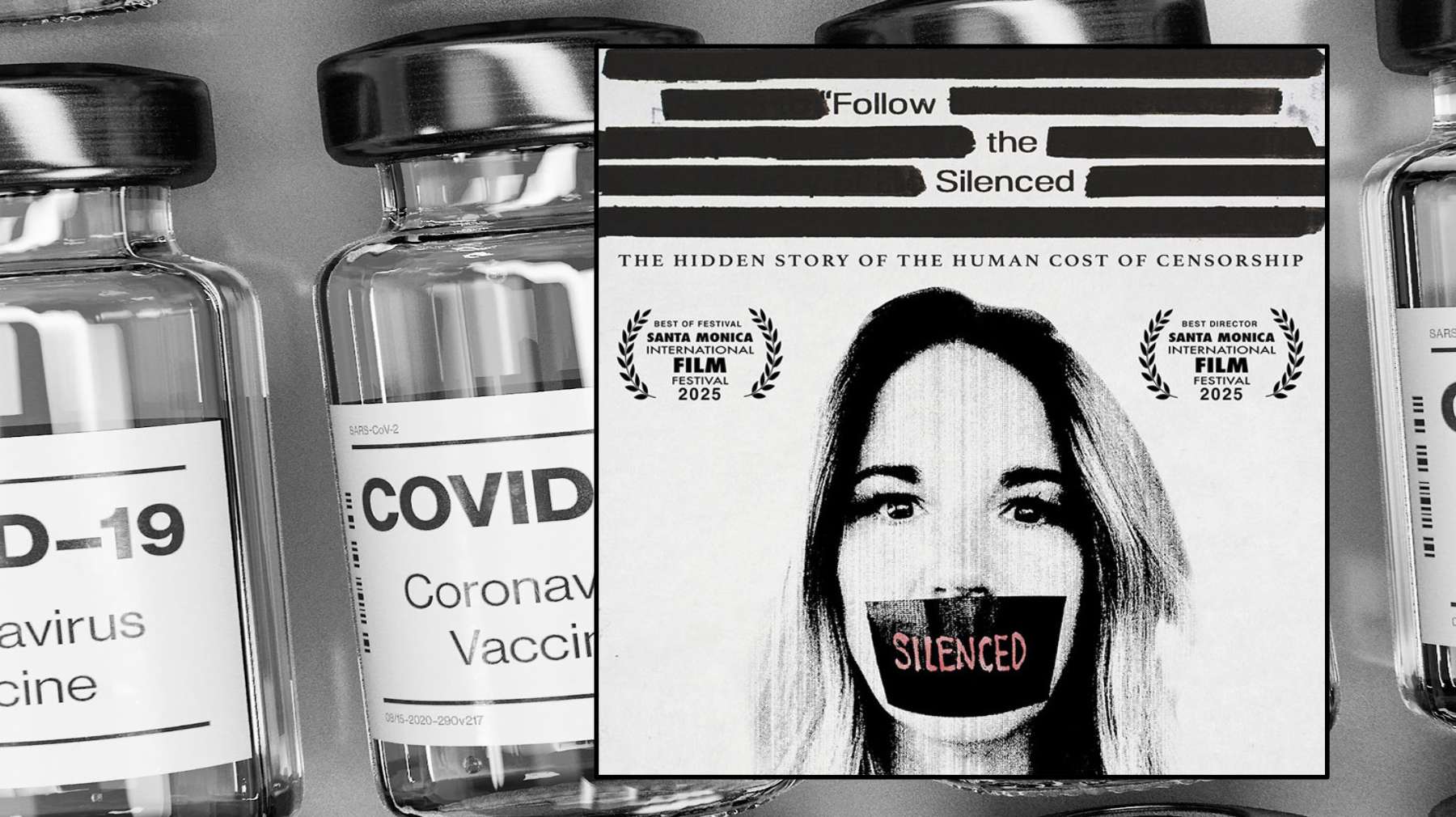UPDATE May 14, 2020: The Texas Pharmacy Board backed down and no longer require a written diagnosis with prescriptions for hydroxychloroquine if a physician does not wish to provide one.
A physician and owner of a medical clinic in North Texas shares her positive experience using affordable medication—one that’s been on the market since World War II—to treat those infected with the Chinese coronavirus. She also says the pandemic has been overstated and had to get State Sen. Bob Hall (R–Edgewood) involved when the Texas State Board of Pharmacy interfered with her prescribing these affordable medications to her patients.
Dr. Ivette Lozano owns and operates Lozano Medical Clinic—an urgent care center in Dallas whose mission is to “provide medical care at an affordable price.” But amid of the government-mandated economic shutdown in response to the Chinese coronavirus, Lozano has discovered a fascinating intersection between her professional and political concerns.
“I was born in a communist country,” Lozano told Texas Scorecard last Wednesday at a rally in support of Shelley Luther, recalling how her parents got her out of communist Cuba in the mid-1960s. “I’m watching my current adopted country run into the same downfalls that we had in Cuba with loss of liberties, incarcerations that are unjustified and unconstitutional.”
Lozano told us she encountered this loss of liberty in her medical practice as she treated patients infected with the coronavirus. “One hundred percent of my patients have recovered very nicely,” she said. “Within 24 to 48 hours, all symptoms are gone with medications that cost about $25-30 in pharmacies.”
What affordable medicines is she using that are showing such a rate of success? Lozano says she learned of two from President Donald Trump in a press conference: Hydroxychloroquine (used traditionally to treat malaria and other illnesses) and Zithromax (an antibiotic).
“[President Donald Trump] … gave a local broadcast that there was a study in Paris that was very successful,” Lozano said. “And those two medications have been implemented in my practice and have been very successful in treating this.”
Lozano soon found herself hitting a brick wall in the form of the Texas State Board of Pharmacy. “All of these pharmacies, and all of these pharmacists, have requested that when I write that prescription for hydroxychloroquine, it be submitted with a diagnosis or the medication is not filled,” Lozano said. “The pharmacy board actually passed a mandate for the pharmacist that every time this medication is written, you have to ask and document the actual diagnosis.”
“Just the fact that I have to disclose your private medical information to a pharmacist … I should be under HIPAA (the Health Insurance Portability and Accountability Act of 1996 that includes privacy restrictions) and not have to release that information … [it’s] unlawful.”
At that point, Lozano reached out to Hall.
“The pharmacy called and told her that she would have to write the diagnosis to fulfill it—which they normally don’t have to do—and that they could only fill it if it was for the traditional use of that particular drug,” Hall said. “She told me about that and said that the pharmacy board had put out a directive, directing the pharmacies to do that.”
“We looked it up, and sure enough, they had done it.”
A meeting was later convened between Hall, a commissioner, the board’s executive director, and the board’s attorney. “I asked them where did they think they had the authority to put pharmacists between the doctor and the doctor’s patient,” Hall said. “We have a long history of medical practice in doctors treating patients, not treating symptoms, and that the use of drugs off-label (prescribing a medication for a use not specified by the Food and Drug Administration) was a well-known, well-accepted practice that has always been in medicine.”
Hall said their response was that they were afraid increased demand on these medicines would affect those who have rheumatoid arthritis or malaria from getting their prescriptions filled.
“You could have done that simply with putting a two-week restriction on the prescription,” Hall replied. “That would have maintained some rather slow distribution and would not have prohibited them from using this.” Hall says that in the meeting, the board representatives admitted doing that but felt it wasn’t enough.
Hall then presented to the them two possible scenarios in which Gov. Greg Abbott might ask the board how he should respond.
The first scenario: Six months later, the states that didn’t restrict the use of these medications found significant levels of success in treating coronavirus patients—while in Texas, thousands died because the medicine was restricted.
The second scenario: Six months later, communications are revealed from the pharmacy boards to pharmaceutical companies restricting the use of inexpensive existing drugs to treat the coronavirus, so a more expensive drug can be developed. “How is the governor going to explain that one?” Hall asked them.
The board’s response to both scenarios, Hall said, was crickets. He then demanded to hear from them the next day. By 8:45 a.m. the following day, they told him the order was rescinded.
Texas Scorecard sent an inquiry to the Texas State Board of Pharmacy about the restrictions and if the requirement violated any HIPAA laws. In response, they sent a link to the rule in question “Adopted on Emergency Basis” on March 20 of this year. The rule requires, for prescriptions of chloroquine, hydroxychloroquine, mefloquine, or azithromycin:
- A diagnosis submitted with the prescription.
- The prescription is limited to 14 days, unless the patient was on it before the new rule.
- A new prescription or medical order in order to obtain a refill.
“The rule does not prevent a physician from prescribing one of these drugs for an off-label use,” the board wrote in its email to Texas Scorecard.

Texas Scorecard also sent inquiries to CVS, Walgreens, and Walmart (which is the parent company of Sam’s Club).
Only Mike DeAngelis, senior director of CVS Corporate Communications, replied and addressed our question on possible HIPAA violations.

Regarding this entire escapade, Hall was very blunt:
“The Texas Pharmacy Board wants to protect the pharmaceutical business by keeping the existing drugs from being used so the pharmacy companies can develop a new, more expensive drug and make lots of money.”
And according to Lozano, Texas isn’t the only state with this problem.
“There are states in the United States where if you write this prescription, you are going to be sanctioned by the medical board with the possibility of losing your license,” she said.
We asked Lozano her assessment of the coronavirus pandemic. “I think it’s very common among physicians that there has been an overstatement of the lethal aspect of this virus and—although it is very dangerous, and we need to attend to patients that are afflicted in a timely manner—the emphasis is on prevention and early treatment,” Lozano said.
She also said the data shows the elderly and those in lower socioeconomic sections of the population are the most vulnerable to the virus, solely because of lack of access to care:
“One of the things that Obamacare was supposed to do was provide healthcare for everyone. But when you open up clinics that are placed in areas of poverty or where there’s lower [socioeconomics], and you staff these clinics with people that are not physicians, with midline providers who don’t have the medical education of physicians, then you really are not giving people healthcare. You’re giving people a false hope.”
“My patients are going to emergency rooms with high fevers, and they’re being sent home and told it’s a virus … so just lock down and quarantine instead of receiving any kind of treatment or medication,” she added.
“When they put them on ventilators, they now treat them inappropriately, and a symptom which is more like a high-altitude sickness turns into an appearance of pneumonia,” Lozano added. “We’re actually blowing out their lungs, inadvertently harming these patients instead of helping them.”
This article has been updated since publication.





